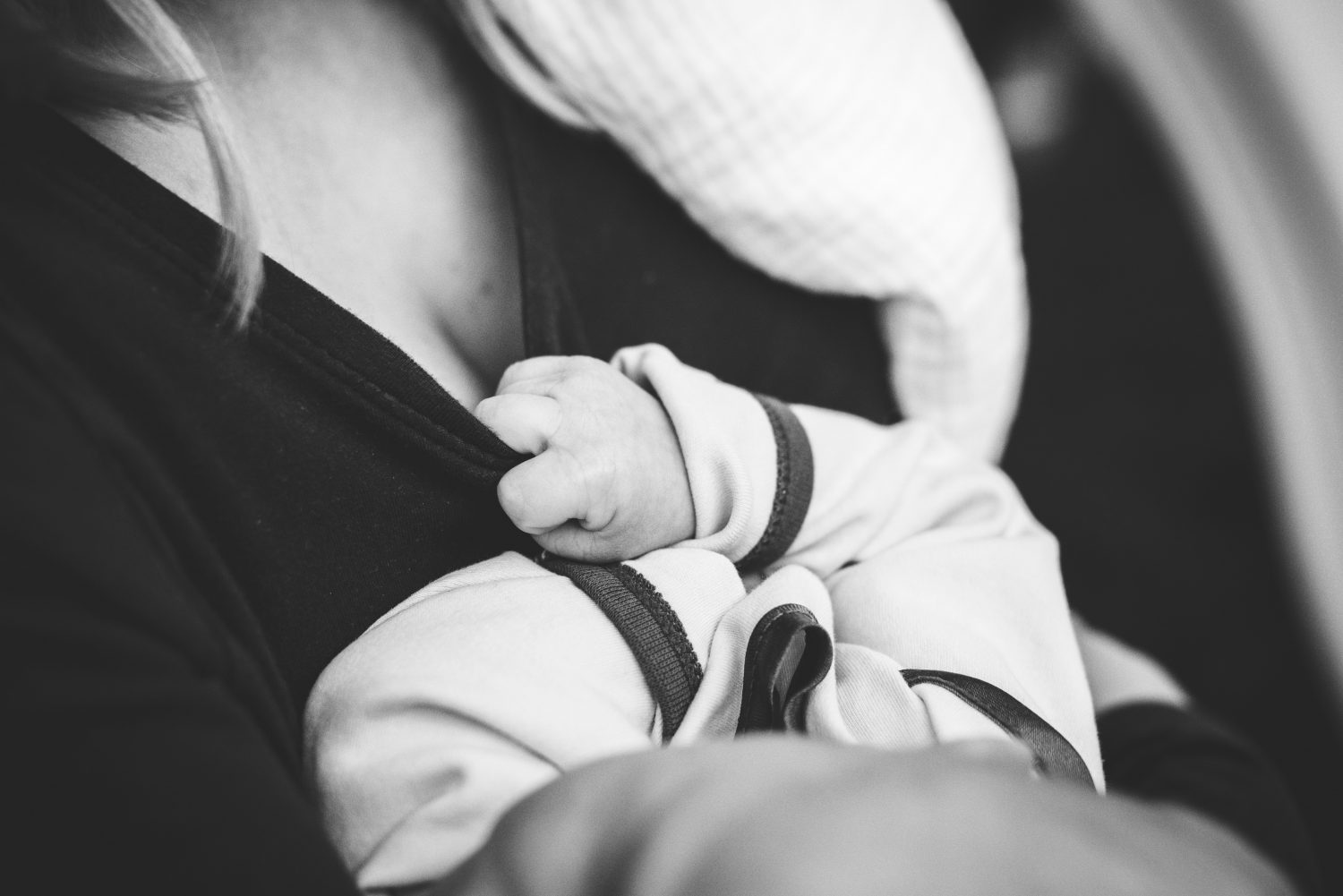A good friend of mine—also the mother of a toddler-aged daughter—recently joked that maternity leave had uniquely trained us for the isolation of COVID-19.
“In a lot of ways, it’s the same,” she said. “Basically you stay home 99 percent of the time, and on the rare occasion you go out, you bring a litre of hand sanitizer with you.”
You may unsubscribe from any of our newsletters at any time.
Her comment came from a place of much-needed levity, but it wasn’t the first time I’ve heard an exhausted mom say that this feels like some terrible version of new motherhood. There’s the sleep deprivation, loneliness and confusion, but without the benefits of park hangouts, coffee dates and library song circles.
Ever since the pandemic forced us inside, I’ve been recovering those travel-sized bottles of hand sanitizer from the pockets of my jackets and travel bags, leftover relics from the anxious early days with my now two-year-old daughter. Maternity leave was a different kind of sudden and overwhelming shift, but the core coping skills I gained postpartum feel oddly applicable now; acceptance, being present in the moment, and the realization that the only constant is change.
As exhausting and frustrating as children can be—especially in these current closed quarters—they are often our best teachers. They are particularly good at reminding us that nothing will last forever. Every sleep regression, every erupting tooth, every inexplicable behaviour is a phase to endure, something you can and will get through. The worries I had about my daughter a year ago are now so far away as to be irrelevant. Even the worries I had about her last week have already morphed into brand-new ones. It’s that transience that makes parenting so heartbreakingly beautiful—immense change happens while time passes at a lightning-fast pace.
More on Broadview: Baking is a touchstone during COVID-19
The resilience of children is also a good model, given what we’ve been asked to endure. Yes, my daughter wants to see her friends just like I do. She misses the zoo, the swings at the park and picking out books at the library. But she also finds great pleasure in methodically peeling the labels off of crayons, putting 50 pennies in a jar, or having the same book read to her 27 times. She can find joy in pouring water from one cup to another, hugging the dog, or running back and forth in the tiny postage-stamp of green space we are grateful to call a yard. Spending long stretches of time with her, both when she was a baby and now, sometimes feels like a masterclass in being present in and satisfied with the moment.
Becoming a mother meant dramatically relearning not only how to approach life, but the pace of that approach. I had to actively cultivate patience, and become okay with staying in one place for long stretches of time, day after day. I had to learn how to embrace simplicity, stillness and quiet, and to understand the art of taking things in, rather than frantically “doing” all the time. I had to reassess not only what was valuable and meaningful in life, but what gave me value and meaning as a person—not, as I previously thought, what I produced, but how I lived and loved.
Children are particularly good at reminding us that nothing will last forever.
But many of these lessons were hard won. As much as I desperately love my daughter, I didn’t always enjoy mat leave the way so many artfully constructed Instagram posts may suggest. Much like now, there were days where I desperately missed my autonomy, my connections with other people, my old life. I missed feeling successful by reliable measures. Instead, I felt like I was failing most of the time. Yet the more I fought against my new circumstances, the more it hurt to exist within them.
What I ultimately came to understand is that in so many situations, acceptance is the key to endurance. Recognizing that something is, but won’t always be, is exactly what cultivates a good life. As I struggled through a mat leave maze of nap schedules, feedings, and the often monumental task of finding time for a shower, the less I resisted, the more I relaxed. The more I understood that the hard things would eventually get easier, the better my days became.
Even though the circumstances are very different, there is a familiarity to these housebound pandemic days. I certainly wouldn’t say that my previous experience makes isolation “easy”—like many, I wake up in the morning and feel that pang of disappointment; another day of this monotony, this feeling of being trapped, this fear and uncertainty. I am, however, trying to find hope and solace where I can, trying to unearth ways of dealing that make my days something more than merely tolerable.
In that way, the education and the countless hand sanitizer bottles that came with new motherhood are serving me well. I’ve never been more grateful for daycare, but I’ve also never been more grateful for the lessons imparted by the difficult, messy, and beautiful business of becoming a mother.
Broadview is an award-winning progressive Christian magazine, featuring stories about spirituality, justice and ethical living. For more of our content, subscribe to the magazine today.













